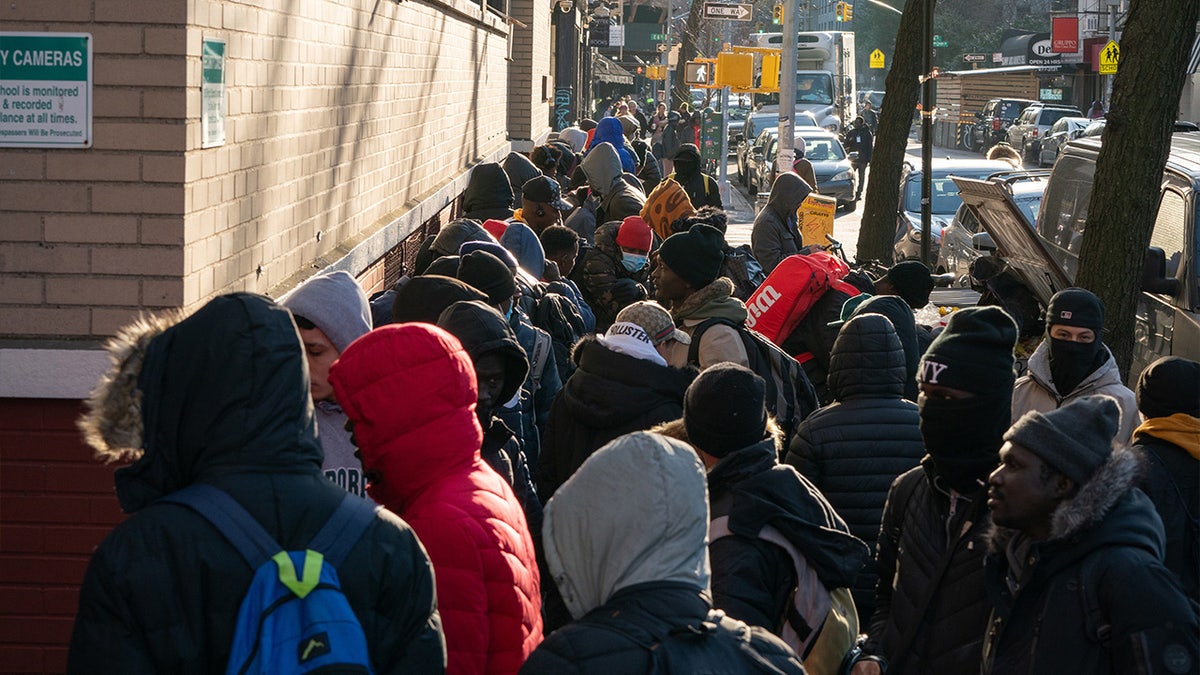House Republicans probing the foreign business dealings of President Biden’s family members are arguing that they do not have to show direct payments to the president in order to demonstrate corruption.
The new argument comes as Speaker Kevin McCarthy (R-Calif.) and other Republicans have floated opening an impeachment inquiry into the president over issues revolving around his family’s business dealings, and could forecast future Republican messaging on the matter.
The argument is reflected in a memo released Wednesday by House Oversight and Accountability Republican staff that outlines millions of dollars from foreign sources that flowed to Hunter Biden and his associates.
Focusing on payments from Russia, Ukraine and Kazakhstan that occurred when Joe Biden was vice president, the memo adds further details about transactions that had been previously reported, including details from a Senate GOP report about Biden family foreign business dealings.
It is the third memo based on bank records obtained by the committee’s Republicans, who say that the probe has identified over $20 million in payments from foreign sources to Biden family members and their associates so far.
None of the memos have identified payments to President Biden directly, or that it directly benefited him.
“President Biden’s defenders purport a weak defense by asserting the Committee must show payments directly to the President to show corruption,” the memo said. “This is a hollow claim no other American would be afforded if their family members accepted foreign payments or bribes. Indeed, the law recognizes payments to family members to corruptly influence others can constitute a bribe.”
The memo also noted that the committee has not yet subpoenaed records from the Biden family.
Republicans have sought to use testimony from Hunter Biden associate Devon Archer, who spoke behind closed doors to lawmakers last week, to augment their arguments of corruption. Archer testified that then-Vice President Biden would greet his son’s business associates when put on speakerphone.
Though Archer said the conversation never went past pleasantries, Republicans argue that the president’s participation at all helped his son sell the appeal of access to the vice president — and that it shows President Biden was not truthful when he said during the campaign that he had never talked to his son about his business dealings.
“It’s clear Joe Biden knew about his son’s business dealings and allowed himself to be ‘the brand’ sold to enrich the Biden family while he was Vice President of the United States,” House Oversight Committee Chairman James Comer (R-Ky.) said in a statement.
“The House Oversight Committee will continue to follow the money trail and obtain witness testimony to determine whether foreign actors targeted the Bidens, President Biden is compromised or corrupt, and our national security is threatened.”
Comer in his statement was referencing Archer’s testimony that Ukrainian gas company Burisma hired Hunter Biden because of the value of the Biden “brand,” which included the then-vice president.
Democrats, though, dismissed the memo and accused Republicans of changing their investigatory standards.
“Comer’s memo doesn’t show anything about President Biden. And faced with his inability to uncover any evidence that President Biden did anything wrong, Comer is now explicitly moving the goal posts,” said Ian Sams, White House spokesperson for oversight and investigations.
Rep. Jamie Raskin (D-Md.), ranking member on the House Oversight Committee, said in a statement that none of the transactions in the memo involved the president and establish that he was not involved in his son’s business dealings.
“Rather than concede this basic fact, Republicans have repeatedly twisted and mischaracterized the evidence in a transparent and increasingly embarrassing attempt to justify their baseless calls for an impeachment inquiry and distract from former President Trump’s dozens of outstanding felony criminal charges in three different cases,” Raskin said.
In the section of the GOP memo that argued direct connection to the president would not be needed to show corruption, a footnote pointed to a Justice Department guide to the Foreign Corrupt Practices Act saying that payments or gifts to an official’s family members could indirectly corrupt or influence a foreign official.
Mike Koehler, a professor and expert on the Foreign Corrupt Practices Act, said that law “only applies to offering promising things of value to a foreign official” — meaning it would not apply to Biden.
But Republicans appear to point to the law as a principle rather than in saying it applies to the president.
Koehler said the law has been enforced in instances like a foreign official’s family member receiving an internship they were not qualified for.
Republicans did not explicitly accuse President Biden of accepting a bribe.
But the GOP memo released Wednesday does insinuate a connection between Russian billionaire Yelena Baturina’s payments to Archer’s company and her not being included on a sanctions list following Russia’s invasion of Ukraine.
As first revealed in the Senate 2020 memo, Baturina in February 2014 wired $3.5 million to Rosemont Seneca Thornton.
Hunter Biden’s lawyer said at the time that he was not a co-founder of the firm and was not a beneficiary of that money, according to CNN. Archer said in his testimony last week that Hunter Biden “was not involved” in that deal.
But the new House Oversight GOP memo aims to show connections between the firm and Hunter Biden. Archer and Rosemont Seneca Partners — a separate entity formed by Hunter Biden, Archer and others — were listed as beneficiaries of Rosemont Seneca Thornton, it says.
Of the $3.5 million, according to the GOP memo, “approximately $1 million was transferred to Devon Archer, and the remainder was used to initially fund a new company account, Rosemont Seneca Bohai, which Devon Archer and Hunter Biden used to receive other foreign wires.”
The memo also noted that then-Vice President Biden attended a dinner at Café Milano in Washington, D.C., with Baturina, Archer, Hunter Biden and others in the spring of 2014 after she had sent the wire.
Archer testified last week that the dinner was “like a birthday dinner,” and then-Vice President Biden “came to dinner, and we ate and kind of talked about the world, I guess, and the weather.”
Copyright 2023 Nexstar Media Inc. All rights reserved. This material may not be published, broadcast, rewritten, or redistributed.

























/cdn.vox-cdn.com/uploads/chorus_asset/file/24924653/236780_Google_AntiTrust_Trial_Custom_Art_CVirginia__0003_1.png)




/cdn.vox-cdn.com/uploads/chorus_asset/file/25672934/Metaphor_Key_Art_Horizontal.png)

